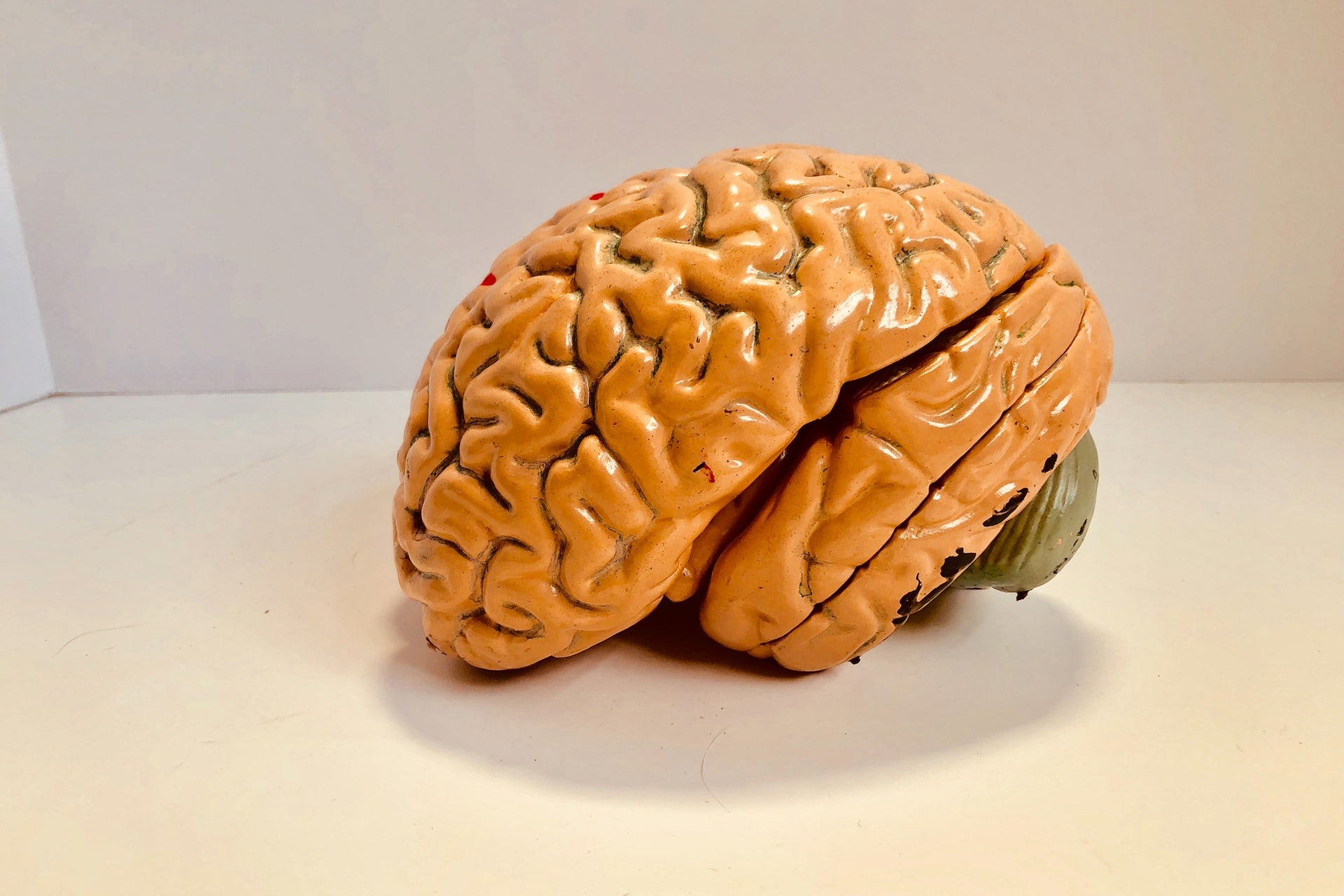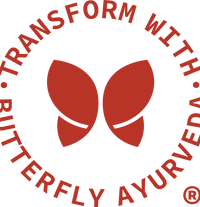
What is Alzhimer's?
Alzheimer’s is a progressive disease that impairs memory and other mental functions. It is the most common form of dementia that generalizes memory loss and loss of other essential cognitive abilities that are serious enough to interfere with an individual’s daily life. Most people often think that this disease is a normal part of ageing but they fail to understand that it brings a string of behavioral changes too. A person may suffer from mood swings as the disease increases. He or she could lose all sense of self and may become completely dependent on the caregiver. In the later stages, the person may even forget speech and locomotor memory.
In Ayurveda, this state is often recognized as "Smruthi Nasha", which is caused by the depletion of dhatus and upward movement of the excessively accumulated Amas (toxins). This results in the brain, which is the home to the three types of Gunas, i.e. Satvik, Rajasik, and Tamasik, gets disturbed and loses its balance, which causes difficulties in communicating, learning, thinking, and reasoning. As the condition worsens, the neurotransmitters and brain fibers degenerate, shrinking the size of the brain as it does. Sadly, the brain doesn't generate new neurons like other organs can grow new cells, and this causes shutting down of the body's system leading to death.
Every year since 2012, 21st of September is marked as the "World Alzheimer's Day", to reduce the stigma and lack of information surrounding dementia. Many people still think Alzheimer's as ageing disease. This year's theme - 'Let's Talk About Dementia' aims to demystify dementia and to get people talking about the perils of this disease.
What Causes Alzheimer's and How it Affects the Body?
There are several theories connected with the onset of Alzheimer's in a person. The likely explanations incorporate heredity, head wounds, Down's syndrome, ailments, or habits that may influence neurotic veins like smoking, heart diseases and stroke, obesity and diabetes, and hypertension. Scientists are continuing to unravel the complex brain changes involved in the onset and progression of Alzheimer’s disease.
It appears to be likely that harm to the brain begins 10 years or more before memory loss and other intellectual issues show up. During this preclinical phase, individuals appear to be normal, however poisonous changes are occurring in the brain. As it happens, the accumulation of proteins called amyloid plaques happens all through the brain. The neurons quit working and lose associations with different neurons, and ultimately die.
Alzheimer’s is a slow disease that progresses in three stages - an early, preclinical stage with no symptoms, a middle stage of mild cognitive impairment, and a final stage of Alzheimer’s dementia.
Ayurveda explains that Alzheimer's is associated with Vata imbalance. Ayurveda explains that a person's physiological cycle is divided as per the Doshas . As an infant and small kid, we are in our Kapha stage, which is made up of 'water and earth'. In this cycle, we have delicate and hydrated skin.
The following stage in life is the adolescent and youthful grown-up years or the 'Pitta stage' which is made up of fire and water. Pre-adulthood shows pure Pitta qualities i.e., resistance, incendiary reactions (for example skin break out and a red hot mentality).
Our excessively sensational and passionate reactions are a clear combination of fire (unreasonable and sensational) and water (feeling). After that, it's adulthood, which is dominated by the Vata (space and air) and turns the skin dry and body non-immune. If we don't take the vital measures to adjust overabundance Vata, occurrence of conditions like Alzheimer's and other neurodegenerative issues is prone to happen.
Ayurvedic Remedies and Healing Methods for Alzheimer's
In Ayurveda system of medicine there are available references to age-associated memory loss, preventive care, and therapeutic interventions. These texts explain the use of several herbs and their qualities and energetics for nervous system disorders, including memory loss typically seen in older adults. It could be related to Vata derangement (improper function of Nervous system) with disorders of the biological air humor and the energy that moves through the brain and
the nerves (the ancients considered nerve impulses to be a kind of wind or air traveling through the body). Hence, it always involves some weakness, disturbance, or hypersensitivity of the nervous system.
Ayurveda explains that impairment in cognitive functions starts as four decades of life, and it suggests a bunch of Medhya Rasayanas (drugs which promote memory & intellect) such a group contains many important candidates such as Ashwagandha, Brahmi, Shankhpushpi, Mandukaparni, Mulethi, Guduchi, Vacha etc. The prescribed use of these medicines along with physical and mental exercise and panchkarma specially shirodhara, nasya shirovasti and shiroverechana including yoga helps in the management of the disease. These herbs are the rich sources of antioxidants, anti-amyloidogenic, neuroprotective, anti-inflammatory, and immunomodulatory compounds working on neuro-endocrine-immune levels and rejuvenate brain functions and ally neuro-degenerative cascades of Alzehimer's. Let's have a look at them separately
Ashwagandha - Ashwagandha is used extensively in Ayurveda as a nervous tonic, aphrodisiac, and 'adaptogen' and helps the body adapt to stress. It is categorized as a rasayana (rejuvenative) and is believed to possess antioxidant activity, free radical scavenging activity, and an ability to support a healthy immune system . Unlike other adaptogens, which tend to be stimulating, Ashwagandha has a calming effect and thus may be particularly indicated in people with Alzheimer's disease.
Turmeric - Turmeric is used as a spice and coloring agent in traditional medicine in Asia. The active constituents are thought to be turmerone oil and water-soluble curcuminoids, including curcumin. Turmeric is anti-inflammatory, antiseptic, and antibacterial and has long been used in the Indian system of medicine to treat a variety of conditions. This versatile spice helps detoxify the liver, balance cholesterol levels, fight allergies, stimulate digestion, and boost immunity.
Brahmi - Brahmi is a bitter-tasting creeper plant found in damp and marshy areas and is commonly used in Ayurvedic medicine as a nerve tonic, diuretic, and cardiotonic and as a therapeutic agent against epilepsy, insomnia, asthma, and rheumatism. Traditionally, Brahmi was used to improve memory and cognitive function.
Nasya - This combination of medicated oils and dry herbal powders is a practical, rapid, and easy way to deliver the therapeutic herbs into the central nervous system.
Abhyanga - A simple massage with an herbal oil heightens the brain function and increases blood flow to the brain. It also reduces levels of cortisol (stress hormone) which relaxes the tight junctions between cells in the nervous system, thus allowing entry of medicines.
Gotu Kola - Is a form of folic acid which is beneficial in improving overall cognition, effective in improving memory domain.
Jyotishmati - Is a form of medicinal oil, which is frequently used as a brain tonic due to its purported effect on memory and intellect.
Jatamansi - The roots of this Alpine climber is used for treating insomnia and blood, circulatory, and mental disorders.
Guggul - Guggul contains Guggulipid, which is a potential cognitive enhancer and memory booster, therefore very useful for treating Alzheimer’s. It is also used to treat various health conditions, such as obesity, arthritis, and inflammation.
A few therapies like Shirodhara and Shiro Seka are also advised for good mental health. In this process a continuous stream of warm, medicated herbal oil is applied on the forehead. This flow of warm oils may influence hormonal and cerebral blood flow. The medicated oil also permeates the skin cells and the frontal lobe and prefrontal cortex. Shirobasti, is another Ayurvedic massage form where medicated oil is poured and retained on the head in a special cap for 30 to 45 minutes, while in Shiro Abhyanga medicated oil is smeared on the head followed by a full-body massage.
Along with the application of Ayurvedic herbs, a nutritious diet, physical activity, social engagement, and mentally stimulating activities have been associated with helping people stay healthy as they age. These factors might also help reduce the risk of cognitive decline and Alzheimer’s disease as clinical trials and testing keep on finding more possibilities.

Comments (0)
Back to News